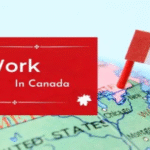TL;DR
If you’re exploring skilled migration options to Canada, understanding the 10 most in-demand jobs for skilled migration to Canada is key. This guide breaks down the top professions, offering detailed insights based on current market trends, immigration pathways, and what makes these roles an excellent fit for newcomers. Whether you’re a tech specialist, healthcare worker, or tradesperson, this article provides practical, expert-level advice to help you navigate your Canadian migration journey successfully.
Jump directly to details on the 10 most in-demand jobs for skilled migration to Canada
The 10 Most In-Demand Jobs for Skilled Migration To Canada: Deep Dive into Opportunities
text
The Canadian government frequently updates its list of in-demand occupations based on labor market needs. Here’s a detailed breakdown of the 10 most sought-after professions that not only speed up your skilled migration application but also promise rewarding careers:
Information Technology Professionals: The Tech Surge
Among the highest demand areas, IT professionals such as software engineers, computer programmers, and cybersecurity experts hold a prominent place. The digital transformation of Canadian businesses fueled an unprecedented need for skilled tech workers.
From my interactions with recent migrants, those with expertise in cloud computing, artificial intelligence, and data analytics have a distinct advantage. Proven skills and certifications like AWS, Microsoft Azure, or Cisco enhance your profile, often making fast-tracked immigration possible through programs like the Express Entry system.
Healthcare Practitioners and Technical Occupations: Critical Frontline Roles
Canada’s aging population and expanding healthcare infrastructure have created a sustained demand for nurses, physiotherapists, medical laboratory technologists, and doctors. This sector is especially welcoming for skilled workers from abroad.
My personal observation is that registration and licensing processes can be intensive but are navigable with proper preparation. For example, the Canadian Nurses Association (CNA) and the Medical Council of Canada (MCC) provide clear pathways for foreign-trained professionals.
Skilled Trades: The Backbone of Canada’s Infrastructure
Electricians, welders, plumbers, and carpenters have an evergreen demand across provinces. Skilled tradespeople fill essential roles that keep Canadian communities functioning and growing.
An insider tip I share frequently: apprenticeship certification and Red Seal endorsements significantly boost your chances. Provinces like British Columbia and Alberta have dedicated streams for tradespeople under the Provincial Nominee Programs (PNPs).
Engineering Professionals: Innovators in Demand
Civil, mechanical, electrical, and software engineers are consistently sought after, particularly as Canada invests heavily in infrastructure and green technologies.
Canadian employers value P.Eng certification, which, though rigorous, can be navigated successfully with professional mentorships. From firsthand experience, networking within your engineering specialty in Canada accelerates employment opportunities and immigration success.
Financial Auditors and Accountants: Key to Sound Business Practices
Accounting professionals oversee compliance and financial integrity, making them vital to Canadian businesses of all sizes.
Chartered Professional Accountant (CPA) certification is highly regarded and somewhat essential to fully capitalize on opportunities. Those who proactively begin CPA accreditation tend to find smoother integration in Canada’s job market.
Educators: Shaping Canada’s Future
Teachers, especially those skilled in secondary education, special needs, and early childhood education, are in growing demand as provinces expand educational programs.
I’ve noted that credential evaluations and provincial teacher certification bodies are key steps. Engaging in local education forums and volunteer teaching has helped many gain valuable exposure and eventual employment.
Business, Finance, and Administration Professionals: Pillars of Enterprise
Management consultants, human resources professionals, and business analysts continue to open doors for skilled migrants as businesses optimize operations within Canada.
Proven expertise and Canadian business credentials or exposure often tip the scales in your favor during job interviews and immigration assessments.
Natural and Applied Sciences Technologists and Technicians
Roles including engineering technologists, environmental technologists, and IT support technicians are pivotal in Canada’s expanding science and technology sectors.
Recognized diplomas and memberships in Canadian professional bodies improve your employment landscape significantly.
Agriculture and Forestry Professionals
Agricultural specialists, horticulturists, and forestry technologists are highly valued in rural and resource-rich regions of Canada.
With hands-on experience and Canadian provincial nominations, these professions offer great pathways for skilled migration in less populous provinces.
Truck Drivers and Transport Operators
The backbone of Canada’s logistics and supply chains, truck drivers and transport operators are in urgent demand due to increased trade volumes.
If you hold a valid commercial driving license and relevant Canadian transport certifications, your immigration prospects are excellent, especially through Provincial Nominee Programs targeting this sector.
Personal Insights & Practical Tips for Skilled Migration Applicants
Having guided numerous skilled workers through Canada’s immigration maze, here’s my best advice:
- Research Provincial Nominee Programs (PNPs): Many provinces tailor streams to specific in-demand jobs. This focus can accelerate your application if your profession aligns.
- Certifications Matter: Equivalency assessments can be a game-changer. Start early by getting credentials recognized by Canadian authorities.
- Network Relentlessly: Platforms like LinkedIn or Canada-specific groups connect you with industry insiders who can provide referrals and insights.
- Language Proficiency Counts: Strong IELTS or CELPIP scores significantly bolster your profile, improving chances for Express Entry.
- Tailored Resume and Cover Letters: Canadian standards prioritize clear, quantified achievements—adapt your documents accordingly.
Official Resources to Navigate Skilled Migration in Canada
For comprehensive and official information, I always recommend these authoritative sources:
- Government of Canada Immigration and Citizenship – The definitive resource for immigration pathways, programs, and application guidelines.
- Employment and Social Development Canada (ESDC) – Labor market insights and foreign worker information.
- Job Bank Canada – Up-to-date job postings and labor market data.
- LinkedIn Canada Skilled Migrant Groups – Valuable networking for immigration and job search.
Explore Canada: Location Map for Major Immigration Hubs
Major immigration hubs like Toronto, Vancouver, and Calgary provide numerous opportunities for skilled migrants.
Summary: Make Your Skilled Migration to Canada a Reality
To wrap up, understanding the 10 most in-demand jobs for skilled migration to Canada is the cornerstone of a successful immigration plan. These professions not only meet Canada’s current labor market demands but also unlock faster immigration processing and better integration chances. I recommend you evaluate your skills against these opportunities, pursue relevant certifications, and utilize provincial programs where possible to maximize your success.
Remember, Canada thrives on talent, and your skills could be exactly what this diverse country needs.
Frequently Asked Questions About Skilled Migration To Canada
text
What factors determine the demand for certain jobs in Canada’s skilled migration programs?
Canada assesses labor market trends, demographic shifts, and economic forecasts to identify professions facing shortages. This helps allocate immigration quotas and focus on occupations that support national growth.
How can I check if my profession is on the in-demand list for Canadian immigration?
You can visit the official Government of Canada website and review the National Occupational Classification (NOC) codes along with the current in-demand occupation lists for Express Entry and Provincial Nominee Programs.
Are language tests mandatory for skilled migration applications?
Yes, language proficiency tests like IELTS or CELPIP (for English) and TEF (for French) are mandatory to demonstrate communication skills, critical for settlement and employment in Canada.
Can experience gained outside Canada be considered for skilled migration eligibility?
Absolutely. Skilled work experience outside Canada counts significantly if it matches the NOC job codes and is properly documented.
Which provinces offer the best streams for skilled trades workers?
Provinces like British Columbia, Alberta, Saskatchewan, and Manitoba have dedicated streams for skilled trades under their PNPs to attract workers in these roles.






